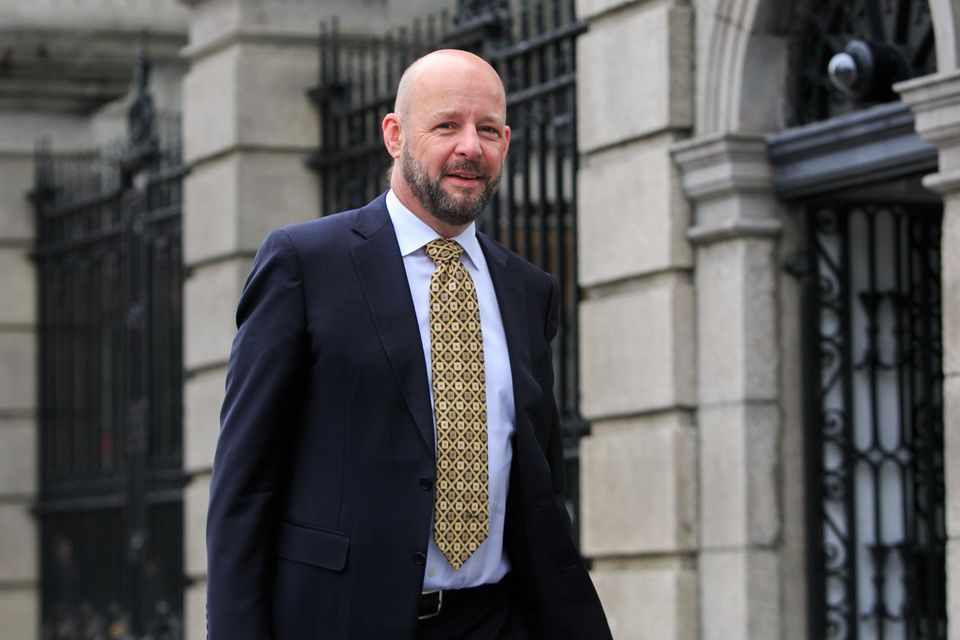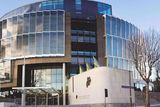Philip Nolan profile: Award-winning research, ‘visionary’ leadership and ‘snake oil’ antigen tests
The Science Foundation Ireland boss became a household name as a key member of Nphet during the Covid pandemic
Professor Philip Nolan was a key figure during the pandemic. Photo: Collins
It was during the Covid pandemic that Professor Philip Nolan went from university academic to somebody whose every word was waited upon by government officials and the public each day.
The Dublin man’s CV saw him become a person with huge influence at a time of national and local lockdowns.
He started out with a Bachelor of Science degree in physiology from University College Dublin (UCD) in 1988, going on to receive a primary medical degree in 1991.
He practised medicine before pursuing a career in academia, becoming a staff member at UCD in 1996.
While there, he received a UCD President’s Research Award in 2000 and a UCD President’s Teaching Award in 2002.
He was awarded a PhD in 2003 for research on controlling breathing and the cardiovascular system during sleep.
Today's News in 90 seconds - 10th May 2024
He was appointed registrar and deputy president of the university in 2004, a role he served in until 2011, when he left to become the president of Maynooth University.
At the outset of the Covid-19 pandemic in March 2020, Prof Nolan was appointed the chair of Nphet’s Irish Epidemiological Modelling Advisory Group (IEMAG), the organisation tasked with providing Nphet and the Chief Medical Officer with statistical advice.
Prof Nolan played a key role in the country’s Covid response as chair of the modelling group. The mathematical models provided by the group were an important element of the overall management of the pandemic response.
As chair of the group, Prof Nolan oversaw the work of experts from different fields across applied mathematics and statistics, and the modelling enabled the Government to prepare for future scenarios.
He was present at the daily Nphet briefings on the response to the pandemic, provided updates on likely scenarios presented by the modelling and communicated future possibilities to the general public and Government.
The work of IEMAG provided projections on future daily case numbers, the effects of public health measures and the impact of vaccine rollout, allowing the country to take a data-led approach to the pandemic response.
Upon Prof Nolan’s appointment as Science Foundation Ireland (SFI) director general in October 2021, then higher education minister Simon Harris said he had been “a constant and valued source of expertise” in his Nphet role.
In May 2021, Prof Nolan entered a row over the sale of antigen tests in supermarkets. He responded to a social media post from supermarket chain Lidl and compared antigen tests to “snake oil”.
“Can I get some snake oil with that? It makes for a great salad dressing with a pinch of salt and something acerbic,” he posted on the social media platform X.
“Stay safe when socialising outdoors over the next few weeks. Small numbers, distance, masks. These antigen tests will not keep you safe,” he added.
Health Minister Stephen Donnelly said Prof Nolan’s post was not “helpful” and antigen tests would play “a more important role” in the following year of the pandemic.
Prof Nolan later clarified the post and said: “The position on antigen testing is clear, it’s been clearly outlined by the Chief Medical Officer. It has its place.
“It’s not recommended in terms of self-administration of tests wherever they might be purchased.”
In May 2021, Prof Nolan was admitted to the Royal Irish Academy. His citation described him as “a distinguished researcher, teacher and administrator”.
Upon his retirement from the role of president at Maynooth University after a 10-year term, tributes paid to Prof Nolan said he had provided “visionary leadership”.
He was credited with overseeing “a university-wide reform of the undergraduate curriculum” and a 20-year master plan for the Maynooth campus.
Last month, Prof Nolan said that he was unsure if he still had messages from the pandemic that could be useful to an inquiry into the handling of Covid.
“I would hope that any Covid inquiry in Ireland is very different from the kind of Covid inquiry they are having in Britain, because they take that kind of adversarial or judicial approach,” he said.
Prof Nolan has two daughters, Rachel and Aoife, with his wife Miriam.
Join the Irish Independent WhatsApp channel
Stay up to date with all the latest news















